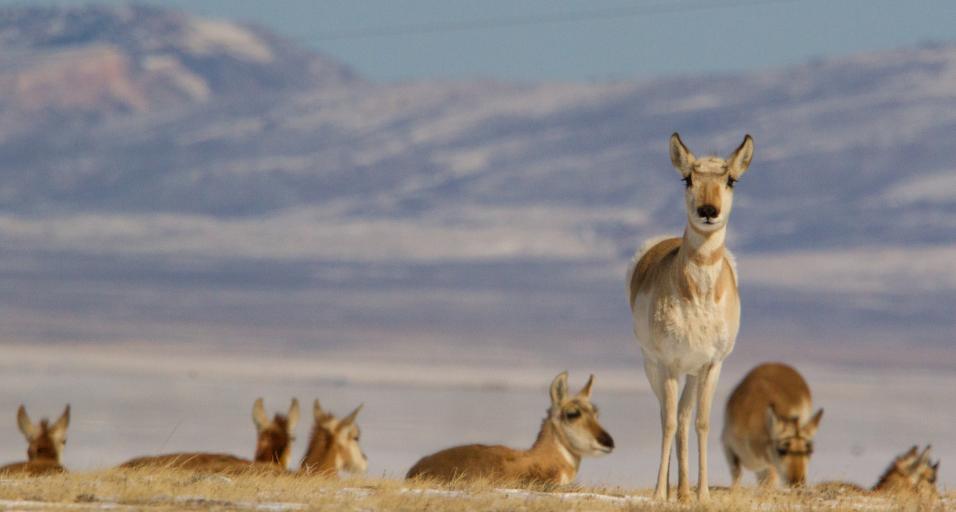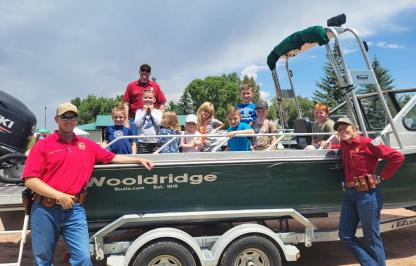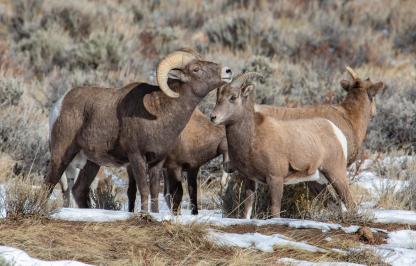Pronghorn and deer east of Farson soon will be able to cross fences along their winter migration routes more easily thanks to improved fencing along Wyoming Highway 28. The stretch of highway can be difficult for pronghorn to navigate during winter migration.
“During tougher winters, pronghorn get balled up on the north side of the highway as they’re moving south to some of their winter ranges,” said Dean Clause, wildlife biologist for the Wyoming Game and Fish Department in Pinedale. “There is winter range on both sides of the highway, but we’ve had some pronghorn that couldn’t get through the fence or negotiate it well with deeper snow levels. They have died on that north side during years with tough winter conditions. I’m pretty sure this project is going to be really beneficial to getting animals through.”
Work is underway for the first phase of the project improving fences between mileposts 5.5 and 14.5. So far, seven paired gates, which can be opened during heavy migration to provide a 32-foot opening for traveling herds, have been installed. This allows animals to cross the highway without having to navigate the fence.
Another part of the first phase includes fastening adjustable wire clips to fence posts to allow the height of the fence’s bottom wire to accommodate migrating pronghorn, which often choose to crawl under fences rather than jump them. The first phase of the project is expected to be completed this spring.
Improvements to Highway 28 for wildlife are a collaborative effort. Sweetwater County Commission Chairman Wally Johnson proposed a meeting to discuss the need for crossing structures or fence modifications. The Game and Fish helped plan and design the project, and the Wyoming Department of Transportation provided the labor and materials. Multiple partners contributed to make the project possible including the Muley Fanatic Foundation Southwest Wyoming Chapter, Greater Yellowstone Coalition, Wyoming Wildlife Federation, Knobloch Family Foundation, Theodore Roosevelt Conservation Partnership, the Nature Conservancy, BLM, Mark Kot and area grazing committees that use the land for cattle and sheep grazing. The cost for materials for the first phase was about $8,200.
During the second phase of the project, crews will replace the barbed bottom wire with a smooth wire and add adjustable clips from milepost 14.5 to just past milepost 33. Clause estimates the cost to be about $30,000 if WYDOT provides the labor. If not, the cost will increase. If funding is secured quickly, the full project could be completed in fall 2020.
Improved fencing to help pronghorn, deer migration
Sara DiRienzo (307-777-4540)



